Unveiling the Power of Free Online Concept Mapping Tools: A Comprehensive Guide
Related Articles: Unveiling the Power of Free Online Concept Mapping Tools: A Comprehensive Guide
Introduction
In this auspicious occasion, we are delighted to delve into the intriguing topic related to Unveiling the Power of Free Online Concept Mapping Tools: A Comprehensive Guide. Let’s weave interesting information and offer fresh perspectives to the readers.
Table of Content
Unveiling the Power of Free Online Concept Mapping Tools: A Comprehensive Guide
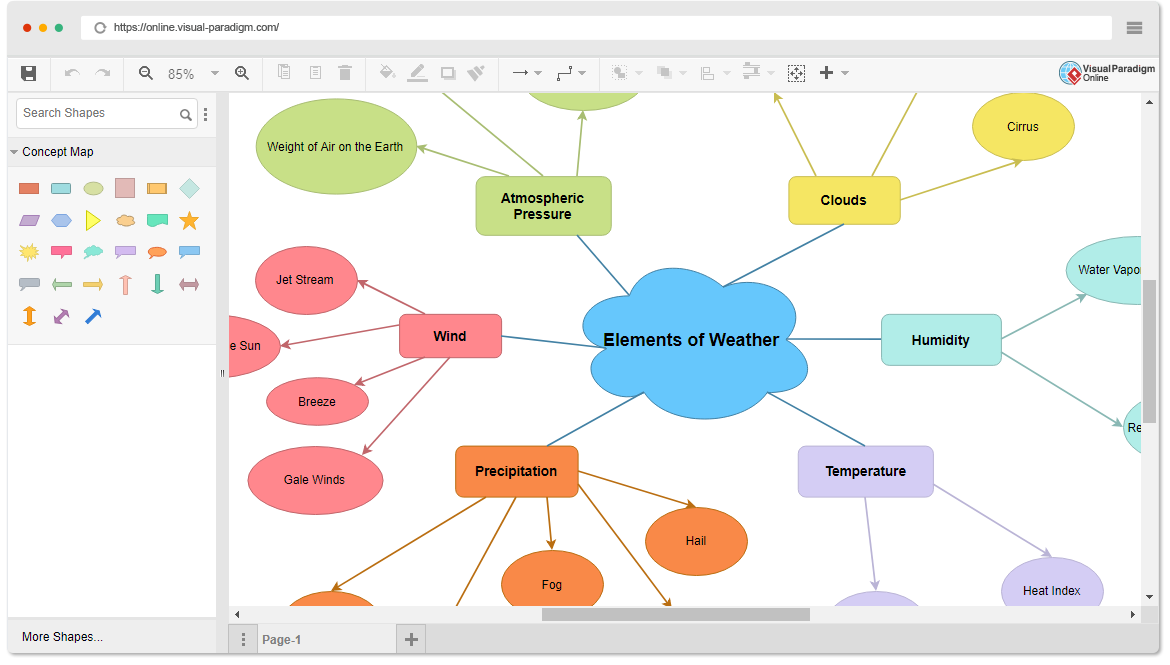
Concept mapping is a powerful visualization technique that helps individuals and teams organize information, identify relationships, and foster understanding. It involves creating a diagram with nodes representing concepts and connecting lines that illustrate the relationships between them. Traditionally, concept maps were drawn manually, but the advent of online tools has revolutionized this process, offering a range of free options that are both user-friendly and feature-rich.
This comprehensive guide delves into the world of free online concept mapping tools, exploring their benefits, functionalities, and how they can be leveraged to enhance various aspects of personal and professional life.
The Significance of Concept Mapping in the Digital Age
In an era of information overload, concept mapping stands out as a valuable tool for navigating complexity and fostering clarity. Its benefits extend across diverse domains, making it an indispensable asset for:
- Education: Students can utilize concept maps to visualize complex topics, understand relationships between concepts, and facilitate effective learning.
- Business: Professionals can leverage concept mapping for brainstorming, project planning, problem-solving, and knowledge management, enhancing collaboration and decision-making.
- Research: Researchers can use concept maps to organize literature reviews, analyze data, and develop research hypotheses, streamlining the research process.
- Personal Development: Individuals can employ concept mapping for goal setting, mind mapping, and personal reflection, promoting self-awareness and personal growth.
Exploring the Landscape of Free Online Concept Mapping Tools
The online landscape is brimming with free concept mapping tools, each offering unique features and catering to different needs. Here’s a curated selection of some of the most popular and effective options:
1. Canva: Renowned for its intuitive interface and visually appealing templates, Canva offers a free concept mapping feature within its broader design platform. Users can easily create professional-looking concept maps with various customization options, including colors, fonts, and icons.
2. Miro: Designed for collaborative brainstorming and project management, Miro provides a free plan that allows users to create and share concept maps with others. Its powerful features include sticky notes, drawing tools, and real-time collaboration capabilities, making it ideal for team projects.
3. Google Drawings: As part of Google Workspace, Google Drawings offers a simple and straightforward way to create concept maps. While its functionality may be less extensive compared to dedicated tools, it’s a user-friendly option for basic concept mapping needs.
4. Mindomo: Focusing specifically on mind mapping and concept mapping, Mindomo provides a free plan with basic features. Users can create hierarchical maps with various branches and sub-branches, enabling the visualization of complex information structures.
5. Coggle: Offering a clean and minimalist interface, Coggle excels in creating collaborative concept maps. Its free plan allows users to create unlimited maps and share them with others, fostering real-time collaboration and feedback.
6. XMind: A versatile mind mapping and concept mapping tool, XMind offers a free plan with limited features. Its strengths lie in its advanced mind mapping functionalities and its ability to export maps in various formats, including PDF, image, and HTML.
7. FreeMind: A free and open-source software, FreeMind offers a robust set of features for creating mind maps and concept maps. Its user-friendly interface and extensive customization options make it a popular choice for individuals and teams.
8. Lucidchart: While Lucidchart offers a free plan with limited features, its robust functionalities make it a strong contender for professional concept mapping needs. Its intuitive interface, extensive library of templates, and collaboration features make it a powerful tool for creating and sharing complex diagrams.
9. ConceptDraw: ConceptDraw offers a free trial for its comprehensive diagramming software, which includes concept mapping capabilities. Its extensive library of templates, symbols, and connectors provides a rich environment for creating professional-looking maps.
10. Creately: Creately provides a free plan with limited features, but its extensive library of templates and collaboration features make it a valuable tool for creating and sharing concept maps. Its intuitive interface and powerful functionalities cater to both individual and team needs.
Understanding the Key Features of Free Online Concept Mapping Tools
While each tool offers unique functionalities, certain features are common across the board and contribute significantly to the effectiveness of online concept mapping:
- Intuitive Interface: A user-friendly interface is crucial for an effective concept mapping experience. Tools with intuitive drag-and-drop functionality, easy navigation, and clear visual cues make the process seamless.
- Collaboration Features: The ability to collaborate on concept maps in real-time is essential for team projects. Tools that offer features like shared editing, comment sections, and version control facilitate effective teamwork.
- Customization Options: The ability to customize maps with different colors, fonts, icons, and templates allows users to create visually appealing and informative diagrams that cater to specific needs.
- Export Options: The ability to export maps in various formats, including PDF, image, and HTML, ensures that maps can be easily shared and incorporated into other documents or presentations.
- Integration with Other Tools: Integration with other tools, such as Google Drive or Dropbox, allows for seamless sharing and storage of concept maps.
Leveraging Concept Mapping for Enhanced Learning and Productivity
The applications of online concept mapping extend across diverse domains, offering significant benefits for individuals and organizations:
- Education: Concept maps can help students visualize complex concepts, identify relationships between ideas, and facilitate effective learning. By creating their own maps, students can actively engage with the learning process and develop a deeper understanding of the subject matter.
- Business: Concept mapping is a powerful tool for brainstorming, project planning, problem-solving, and knowledge management. By visually representing ideas and relationships, teams can effectively collaborate, identify potential issues, and develop innovative solutions.
- Research: Researchers can utilize concept maps to organize literature reviews, analyze data, and develop research hypotheses. By visually representing research findings, researchers can gain a deeper understanding of the subject matter and identify potential areas for further investigation.
- Personal Development: Concept mapping can be used for goal setting, mind mapping, and personal reflection. By visually representing personal goals, values, and aspirations, individuals can gain a clearer understanding of their priorities and develop effective action plans.
FAQs Regarding Free Online Concept Mapping Tools
1. What is the difference between mind mapping and concept mapping?
While both techniques involve creating visual diagrams, mind mapping focuses on a central idea with branching sub-ideas, while concept mapping emphasizes the relationships between concepts. Mind maps are often used for brainstorming and generating ideas, while concept maps are more suitable for organizing information and understanding relationships.
2. Are free online concept mapping tools suitable for professional use?
Many free tools offer robust features and functionalities that cater to professional needs. However, for advanced features and unlimited storage, paid plans may be necessary.
3. What are the benefits of using online concept mapping tools?
Online tools offer several advantages over traditional methods, including:
- Collaboration: Real-time collaboration features enable teams to work together on maps.
- Customization: Extensive customization options allow for visually appealing and informative maps.
- Accessibility: Online tools can be accessed from any device with an internet connection.
- Ease of Use: Intuitive interfaces make concept mapping accessible to users of all skill levels.
4. Can I use free online concept mapping tools for academic purposes?
Yes, many free tools can be used for academic purposes. However, it’s essential to check the terms of service and ensure that the tool meets the specific requirements of your academic institution.
5. How do I choose the best free online concept mapping tool for my needs?
Consider the following factors when choosing a tool:
- Features: Identify the functionalities that are essential for your needs, such as collaboration features, customization options, and export formats.
- Ease of Use: Choose a tool with an intuitive interface that is easy to navigate and understand.
- Integration: Consider whether the tool integrates with other tools you use, such as Google Drive or Dropbox.
- Free Plan Limitations: Understand the limitations of the free plan, such as storage space, number of maps, or features.
Tips for Effective Concept Mapping
- Start with a Central Idea: Begin with a clear central idea or topic and branch out from there.
- Use Concise Language: Keep your concepts short and to the point.
- Focus on Relationships: Highlight the connections between concepts using linking phrases or arrows.
- Use Visual Cues: Employ colors, icons, and fonts to enhance the visual appeal and clarity of your maps.
- Iterate and Refine: Don’t be afraid to revise and refine your maps as you gain a deeper understanding of the topic.
Conclusion
Free online concept mapping tools provide a powerful and accessible way to visualize information, foster understanding, and enhance productivity. By leveraging these tools, individuals and teams can unlock the potential of concept mapping across various domains, from education and business to research and personal development.
Choosing the right tool depends on individual needs and preferences. By carefully evaluating the features and functionalities of different options, users can find a tool that effectively supports their specific goals. The world of free online concept mapping is constantly evolving, offering a range of options that empower users to harness the power of visual thinking and unlock new levels of clarity and understanding.


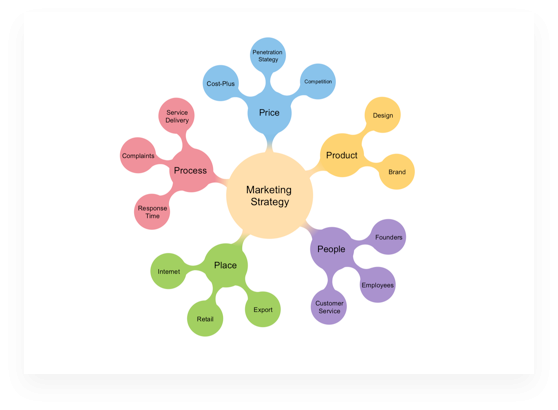
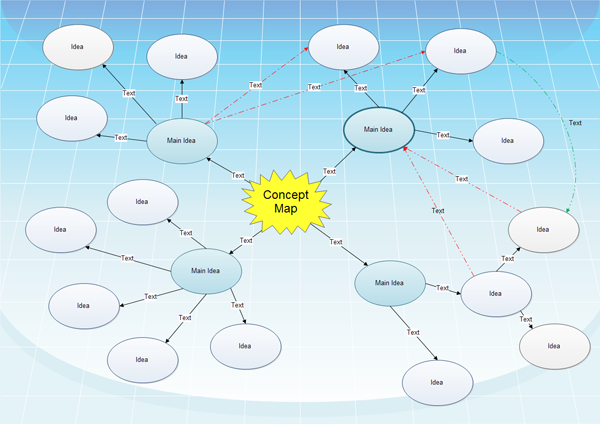

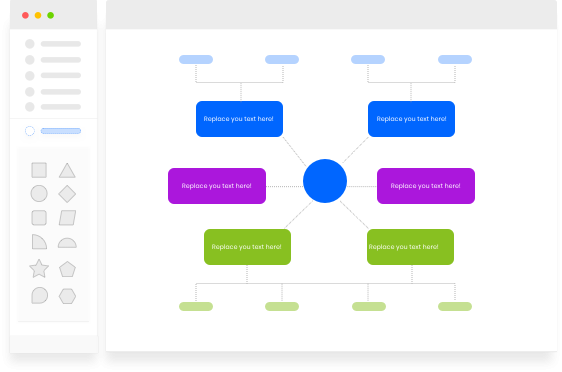
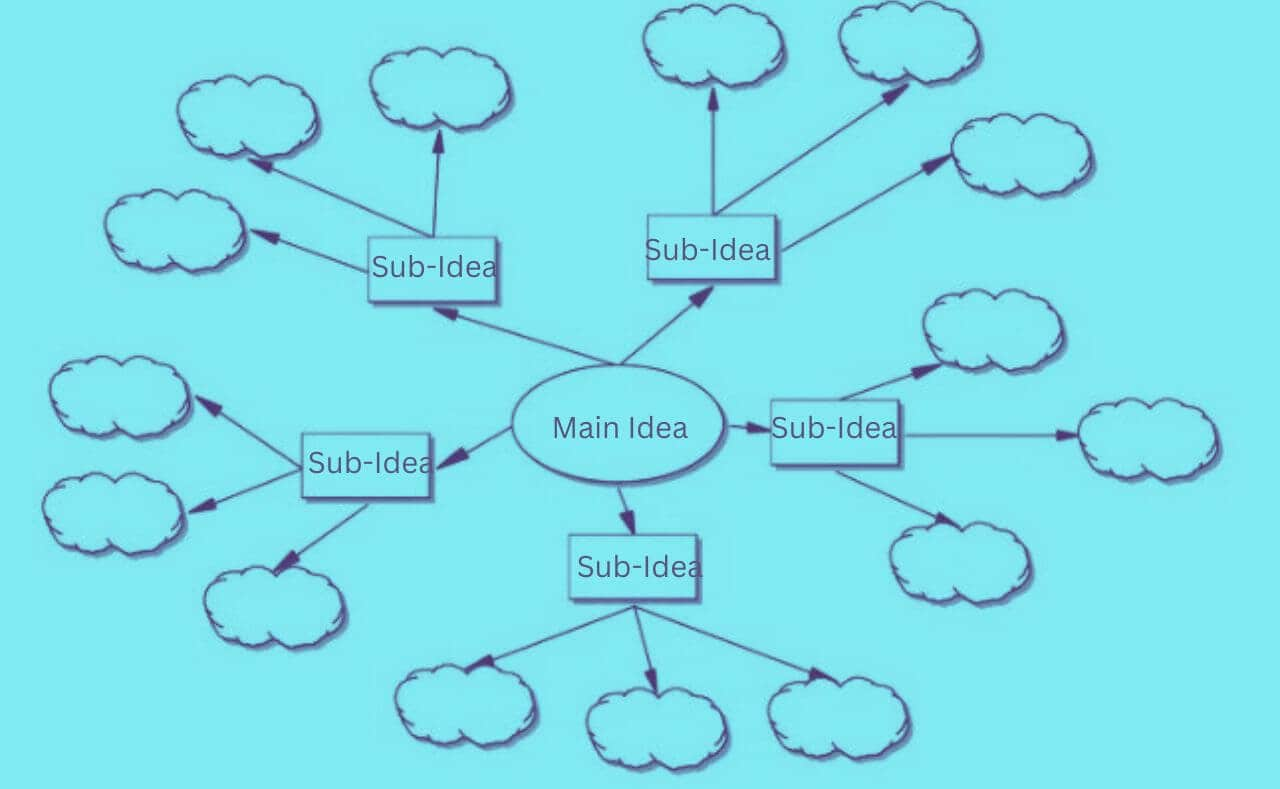
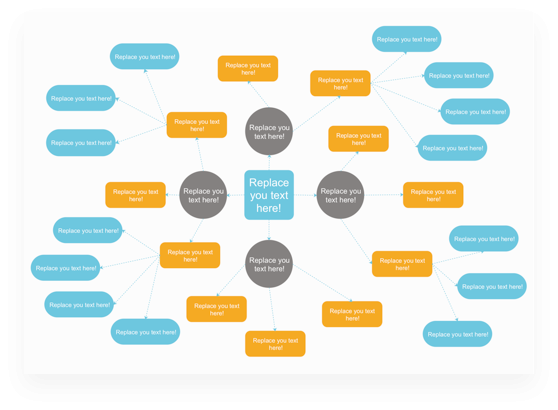
Closure
Thus, we hope this article has provided valuable insights into Unveiling the Power of Free Online Concept Mapping Tools: A Comprehensive Guide. We hope you find this article informative and beneficial. See you in our next article!
